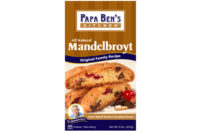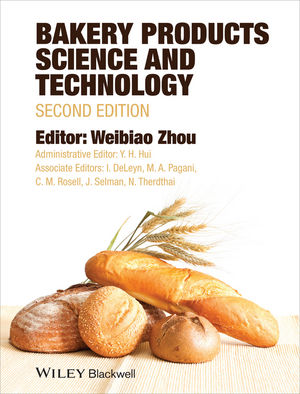Twice as Nice
Today, however, the script has changed. Supermarkets want unique store-branded snacks while major food manufacturers are turning to contract manufacturers to outsource new product development and production instead of investing millions in capital expenditures to make it themselves.
With the emphasis on more wholesome products, private label snack producers are being asked to create products that are new in more ways than one. That’s why Wyandot Inc. is expanding its Marion, Ohio-based plant by nearly 15,000 sq. ft. and installing a twin-screw extrusion line that provides more versatility than the four other single-screw lines it already has.
“It was primarily our desire to get into the better-for-you market,” says Dan McGrady, vice president of technical services. “Twin-screw technology will allow us to produce more cutting-edge products, including whole grain and multi-grain formats, high-protein, high-fiber, gluten-free and fortified bases, and more exotic shapes and textures.”
The new 7,500-sq.-ft. production area houses a 5,000-lb. horizontal mixer with a bulk ingredient handling system, a stainless steel drying oven, and the twin-screw extruder, which can crank out 2,000 lb. of baked snacks an hour and is expected to start-up production in mid-April. After passing through the dryer oven, McGrady says, the products can be channeled along a savory path that produces more traditional oil seasoning snacks such as extruded cheese snacks. Or, the snacks can be diverted to a sweet-path to create more cereal-like products.
Currently, Wyandot’s single-screw extruders create puffs, sticks, rings or fries that are typically made from such ingredients as corn meal that may or may not be blended with potato flake or other meals. Compared with single-screw technology, twin-screw extruders can incorporate a wider variety of ingredients into a single product.
“With the twin-screw system, we can use whole grains, multi-grains and different substrates, if you will, to make our products,” McGrady explains. “That opens up a whole new area in the way of better-for-you snacks.”
During the past few months, the Wyandot product development team traveled to The Ohio State University, which has a small twin-screw extruder in its test kitchen.
“We’re just amazed at what we’re able to get off a twin-screw extruder,” McGrady says. “We have been prototyping products ahead of our own installation. We’re just thrilled with the new capabilities.”
In a single-screw extruder, the peak pressure occurs right before the discharge of the machine. Excessive pressure from coarse or viscous ingredients can cause sheering, which can damage the expansion of the product during baking or frying.
In a twin-screw system, the pressure peaks can be adjusted, allowing it to handle a greater variety of ingredients, including fine particle sizes that would lock up a single-screw extruder.
“We’re able to get a fair amount of fiber in our products, much more than we were able to get with our single-screw technology because of the design of the equipment,” McGrady explains. “We’re able to get higher specific mechanical energy into our matrices, which allow us to have a lot more expansion in the product.”
Wyandot purchased a hydraulic option for the new extruder, which allows operators to separate the barrels of the screw elements more easily to simplify cleaning between changeovers. PLC controls monitor formulation and production while a chilling system provides tight control over barrel temperatures, ensuring greater consistency.
While the production room is starting up, McGrady notes the new packaging department is still a “work in progress” depending on customers’ needs. Currently, Wyandot has vertical form/fill/seal packaging machines with statistical weighing scales on top. It can move product from the new production area to existing packaging lines. The new packaging area will likely house alternative packaging formats.
In the past, he adds, Wyandot had been more of “your garden variety” contract manufacturer. With the new technology, the snack producer can program the line to offer targeted products to a wider variety of channels.
Looking for a reprint of this article?
From high-res PDFs to custom plaques, order your copy today!









